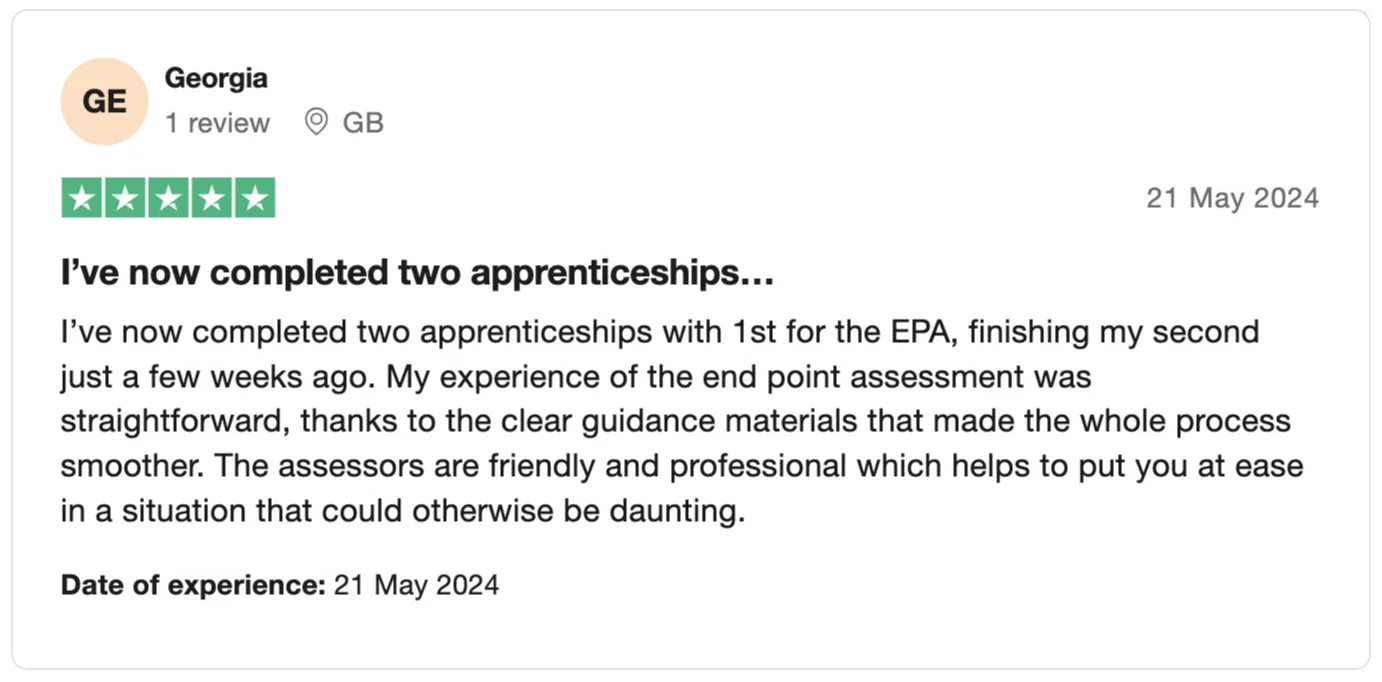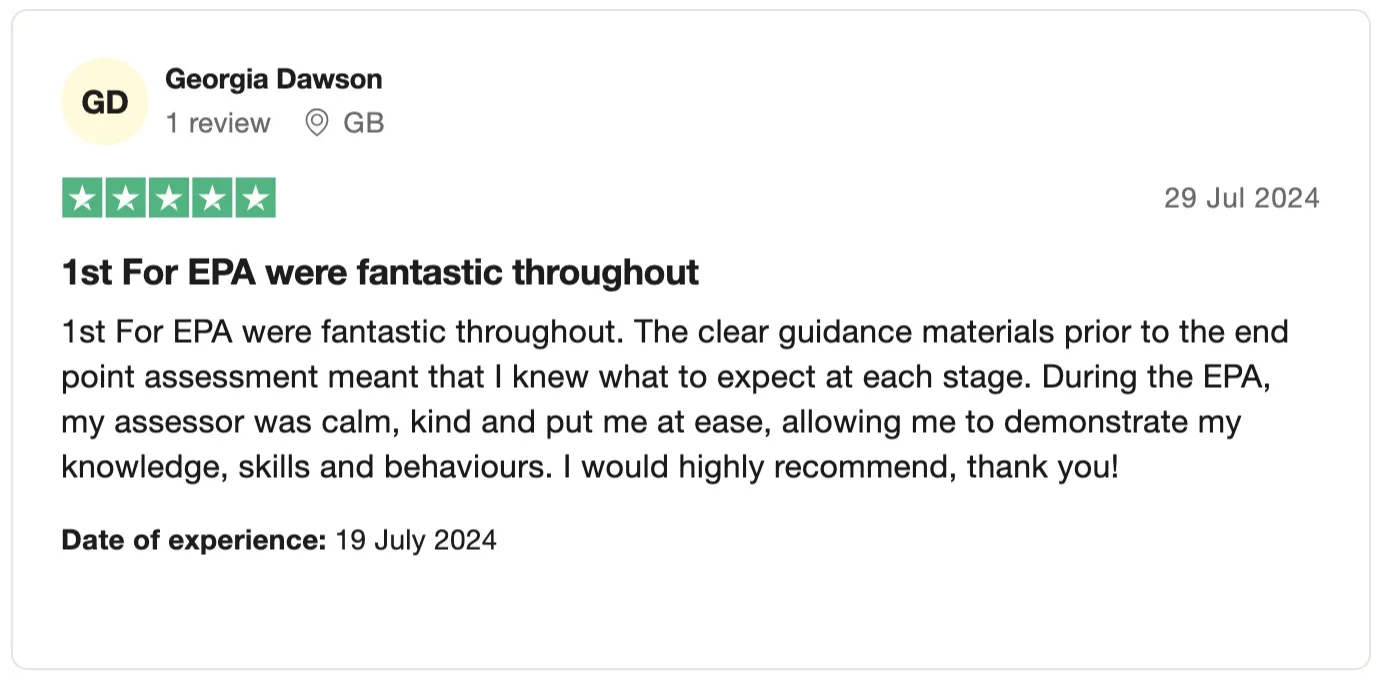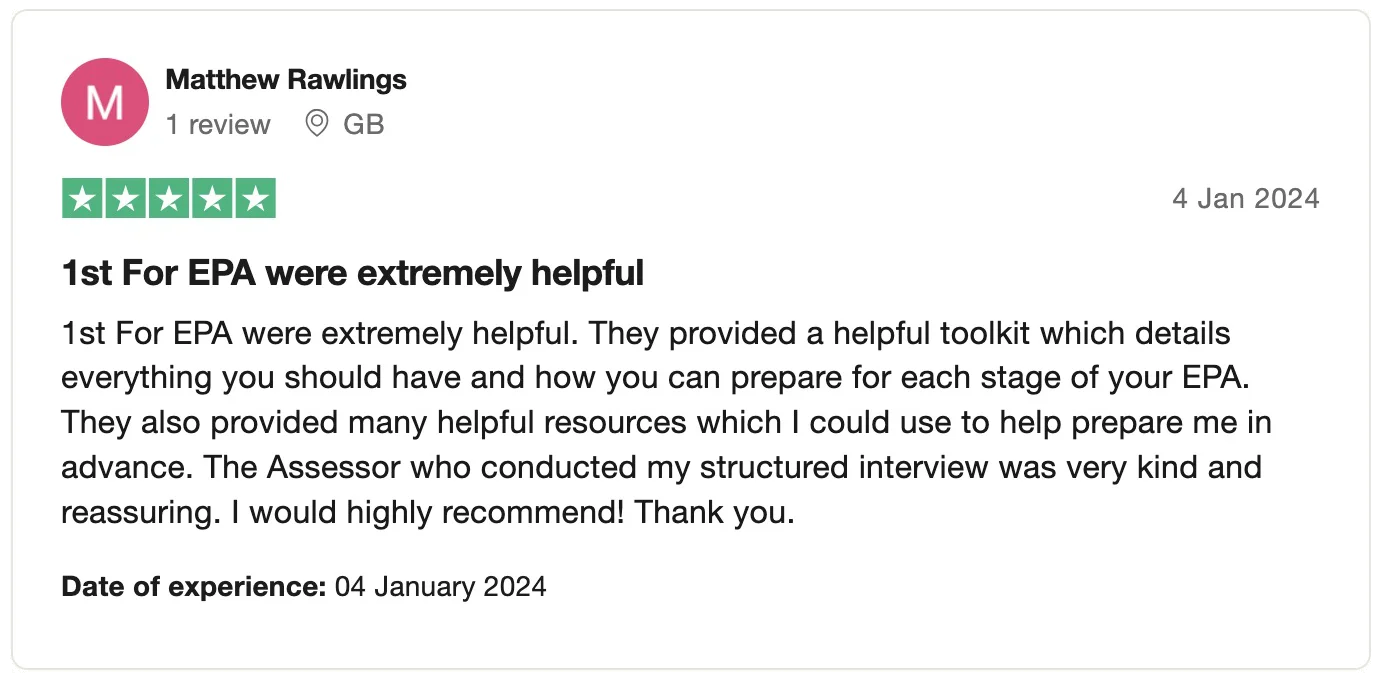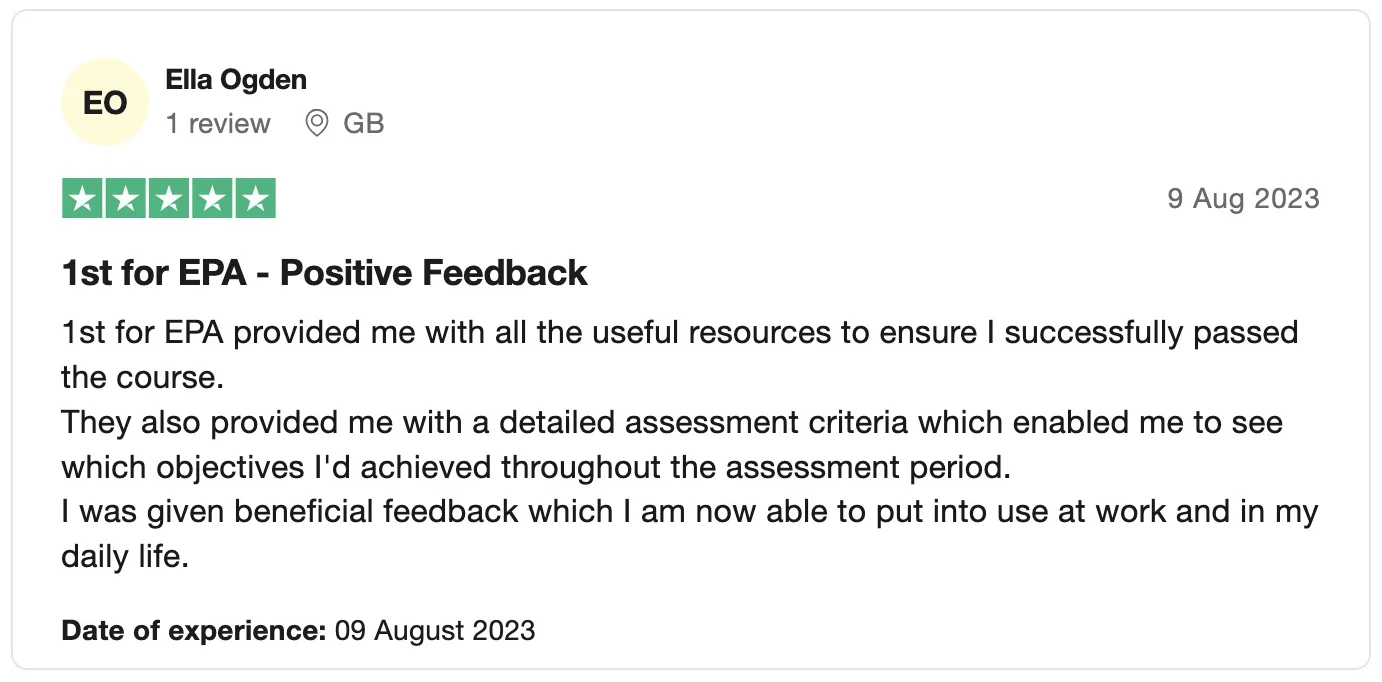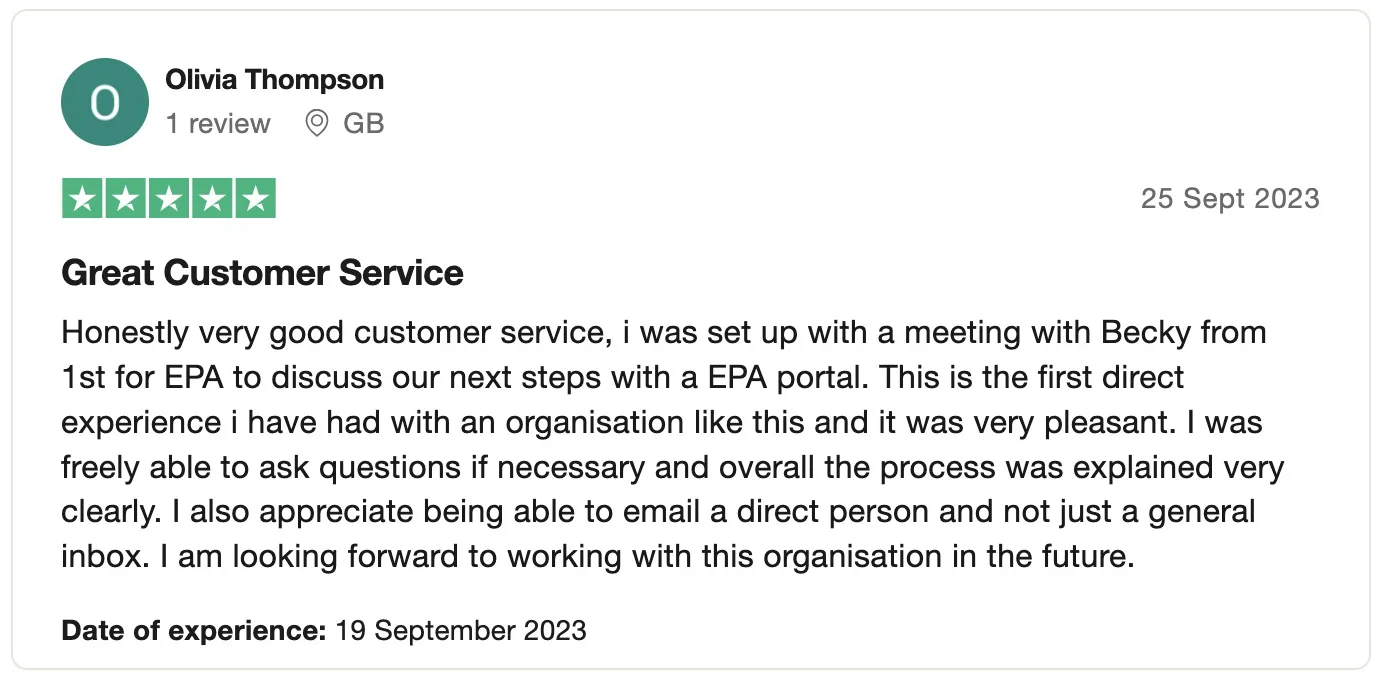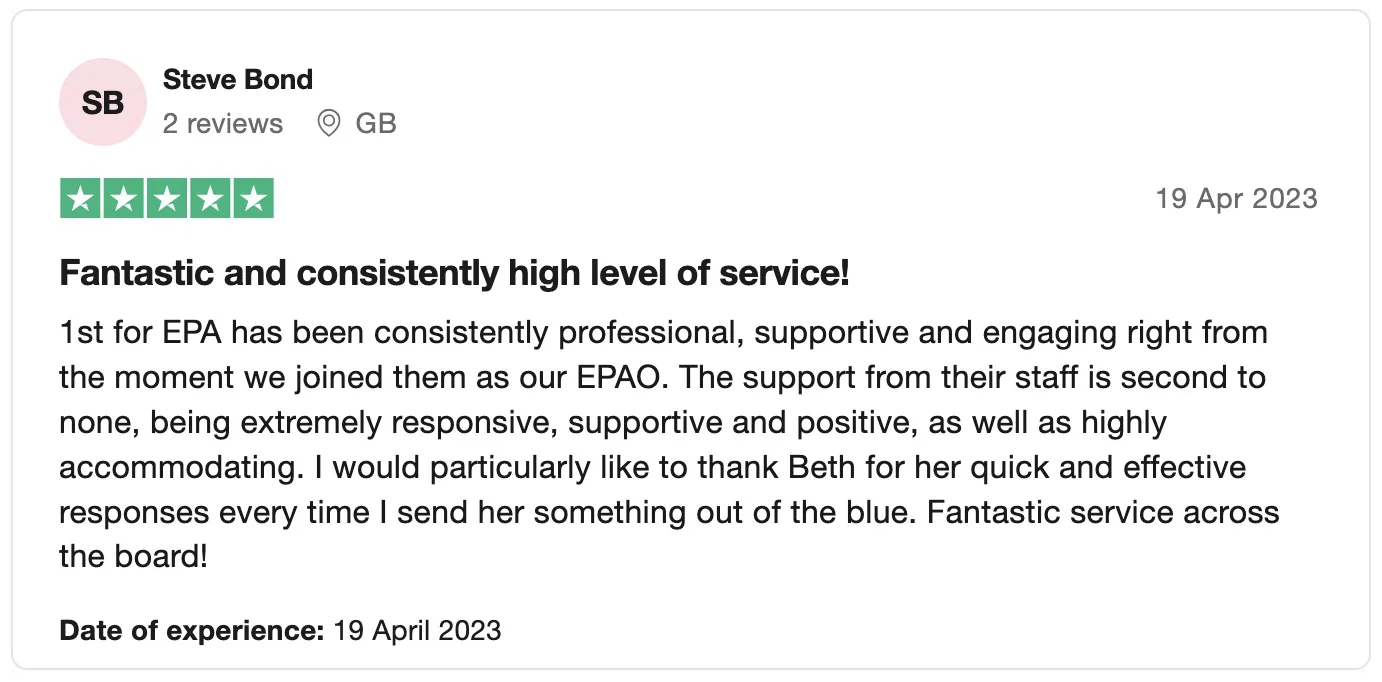How to spot if your wellbeing is deteriorating during your apprenticeship
With apprenticeships lasting at least a year, and for some standards several years, it’s a significant part of your life. You’ll be balancing learning, work and life during your on-programme stage, and towards the later stages you have the extra responsibility of preparing for your assessment. The pressure to perform well can feel a lot, so it’s important to keep an eye on your physical and mental wellbeing and ensure these don’t deteriorate.
Some key signs to look out for are:
- Irritability or being more emotional than usual. When you are struggling with stress it can take a toll on your emotions and make you snap or react differently to situations than you would normally. If you notice this happening, try speaking with your tutor/coach or a manager, as they may be able to help relieve some pressure.
- Disrupted sleep. If you are struggling to fall asleep or have a pattern of poor sleep, this could be a sign your wellbeing is deteriorating – and in some cases, it can be a symptom of anxiety or depression. It’s important to monitor, and if it gets worse, you should seek medical advice.
- Difficulty speaking, thinking clearly or making decisions. Your physical and mental wellbeing can have effects on your body, including your brain function. It’s important to keep an eye out for any changes in yourself and the way you feel, and reach out for help if necessary.
- Difficulty remembering or concentrating on things. Is your mind elsewhere? Is it difficult to do your usual day-to-day tasks? Try taking a break – sit back and let your mind and body rest. It might help to do our 5 desk exercises to relieve tension at work. If work pressures prevent you from taking regular breaks, try to resolve the situation with your manager.
- Pulling away from people and usual activities. Isolating yourself from your usual activities and social life can be a sign that you are struggling. It is important to keep a support network around you. Often, talking to others about how you are feeling and what’s bothering you can make you feel a lot better.
- Having low or no energy. Losing your motivation and passion can be a sign that your wellbeing is deteriorating, and it can severely impact your daily performance. Ensuring you are eating properly and getting enough sleep can help combat this. They are both vital in maintaining your wellbeing. Mental health issues can make these things very difficult, so it’s important you access support if you need it – see our Resources and Helplines for ideas and help if you are struggling.
- Significant decline in work performance, poor work attendance, or lack of productivity. When your wellbeing is impacted by stress or pressure, it can become difficult to do your daily jobs and maintain your usual work performance. Speak to your employer and see what support is available for you and seek extra help if needed.
What should you do if your wellbeing is deteriorating?
Recognising that your wellbeing is deteriorating is a great first step. What can you do next?
1. Address the source of the problem
As you can see from the list above, the signs that your wellbeing is deteriorating are usually symptoms of other issues. It might be a heavy workload, pressure from your apprenticeship, issues in your personal life, or many other things. Often it can help to identify the source of the problem, and this will help you tackle it.
2. Find solutions
You know what’s causing the issues, now how can you resolve it?
Perhaps stress at work could be solved by speaking to colleagues about sharing your workload or setting priorities. If your end point assessment (EPA) is approaching and you don’t feel ready, ask your training provider about delaying your gateway date.
Think about the source of the problem and how the resources you have – including your support networks – could be used to minimise these.
As much as we try, we will never be able to solve all our issues. We have to accept that stress is a part of life, and learn how to manage the effect it has on us. You may want to look into Building Emotional Resilience.
You may also find it useful to:
- View our wellbeing articles
- Sign up for the free apprentice wellbeing service
- Think of ways to stop future issues arising – or how to minimise their impact on you when they do occur
- Reach out for help.
3. Take ownership
There’s a great quote from Terry Pratchett: “Even if it’s not your fault, it’s your responsibility.”
What does this mean? You’re responsible for your own happiness and you have the power to control a lot of the world around you. The lesson is to address problems when they arise – or even to anticipate future issues and do what you can to manage them.
Of course, not all problems can be solved easily – or at all – but by taking action, you can reduce the effects on your wellbeing.
Here are some articles you may find helpful:
Advocating for yourself at work






































